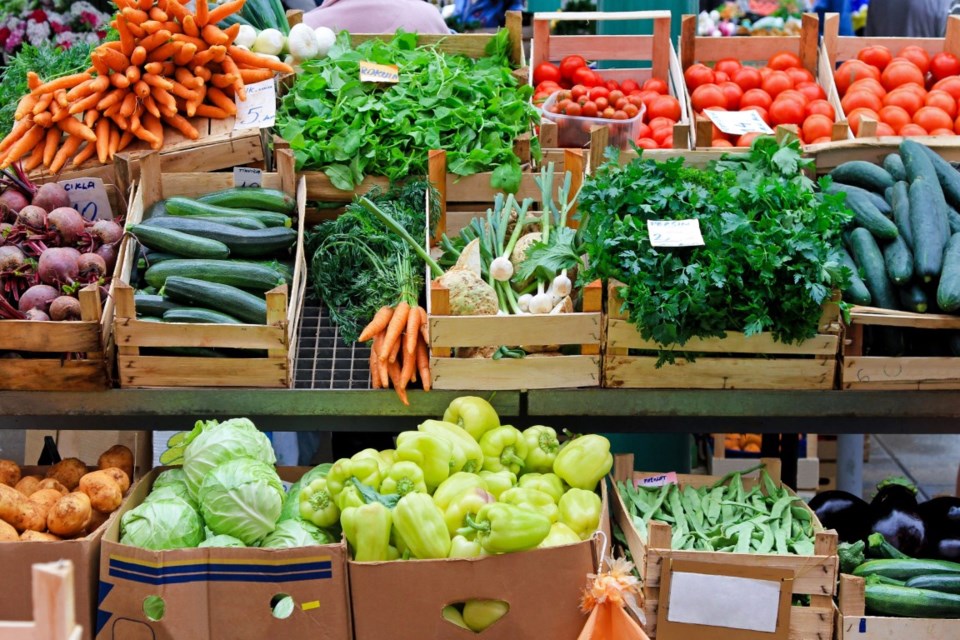Many people in Canada agree that the grocery industry needs more competition, but finding the right player to shake things up is a tough challenge. People have been considering potential contenders, like the German companies Aldi and Lidl, which are already operating in the United States. Another candidate is Alimentation Couche-Tard, which made a notable bid to buy the French company Carrefour last year.
And of course, there's Amazon, which raised a lot of excitement when it bought Whole Foods for nearly US$14 billion in 2017. But now, this anticipation has since given way to a more tempered assessment of Amazon's performance in the grocery sector.
When Amazon acquired Whole Foods, many experts thought it would seamlessly combine its online success with physical grocery stores in the U.S. and Canada. The news of Amazon buying Whole Foods caused Canadian grocery stocks to drop significantly. Companies like Loblaw and Empire (Sobeys' parent company) saw their stock prices fall by over 3.5 percent, while Metro's stock dropped by almost three percent.
Canadian grocery stores quickly jumped into the growing online food market by offering "Click and Collect" services. But even with all these efforts, e-commerce makes up less than four percent of Canada's total food retail market, even with the pandemic pushing more investments into this area.
However, since Amazon's takeover, Whole Foods has failed to exhibit substantial growth. Last year, its net income barely increased, a far cry from the promising eight percent growth in 2017. Amazon tried to enhance the Whole Foods shopping experience with high-tech features like self-checkout lanes using biometric payments, but these efforts didn't impress customers. Also, the number of Whole Foods stores has stayed the same since the acquisition, with about 500 in the U.S. and just 14 in Canada. Plus, the average grocery bill at Whole Foods is much higher than at other stores, a disconcerting observation in an era marked by skyrocketing food prices.
Amazon's push into cashier-less grocery shopping with Amazon Fresh has faced its own problems. This concept, perceived as a technological revolution in food retailing, eliminates the need for cashiers and staff by relying on sensors and smartphones. Amazon Fresh currently runs 38 stores, but none are in Canada, and the company recently paused expansion for a re-evaluation. In practice, these stores have often offered lower-quality products at higher prices, resulting in a disappointing shopping experience. Amazon is still figuring out its place in the grocery industry, and Amazon Fresh is a work in progress at best.
For those Canadians yearning for increased competition, the onus for improvement falls upon Amazon. Unfortunately, Amazon won't be Canada's budget-friendly grocery savior anytime soon.
But it's worth considering whether the Canadian market presents unique challenges compared to the U.S. Ironically, the small grocery chain T&T, owned by Loblaw, is planning to enter the American market next year, starting in the greater Seattle area. This is in stark contrast to Target's attempt to break into the Canadian market in 2014, which faced well-documented difficulties.
In summary, there's no doubt that Canada's grocery sector needs more competition. Finding the right player to reshape the industry is still a complex task. While Amazon's entry into the grocery business was initially exciting, its performance so far has left much to be desired. Canadians are still waiting for a strong contender to come in and transform the grocery industry as the quest for more competition continues.
Dr. Sylvain Charlebois is senior director of the agri-food analytics lab and a professor in food distribution and policy at Dalhousie University.
You can no longer count on social media to deliver important news to you. Keep your news a touch away by bookmarking SASKTODAY.ca's homepage at this link.
Subscribe to SASKTODAY.ca newsletter to get our daily news to your inbox.
©




